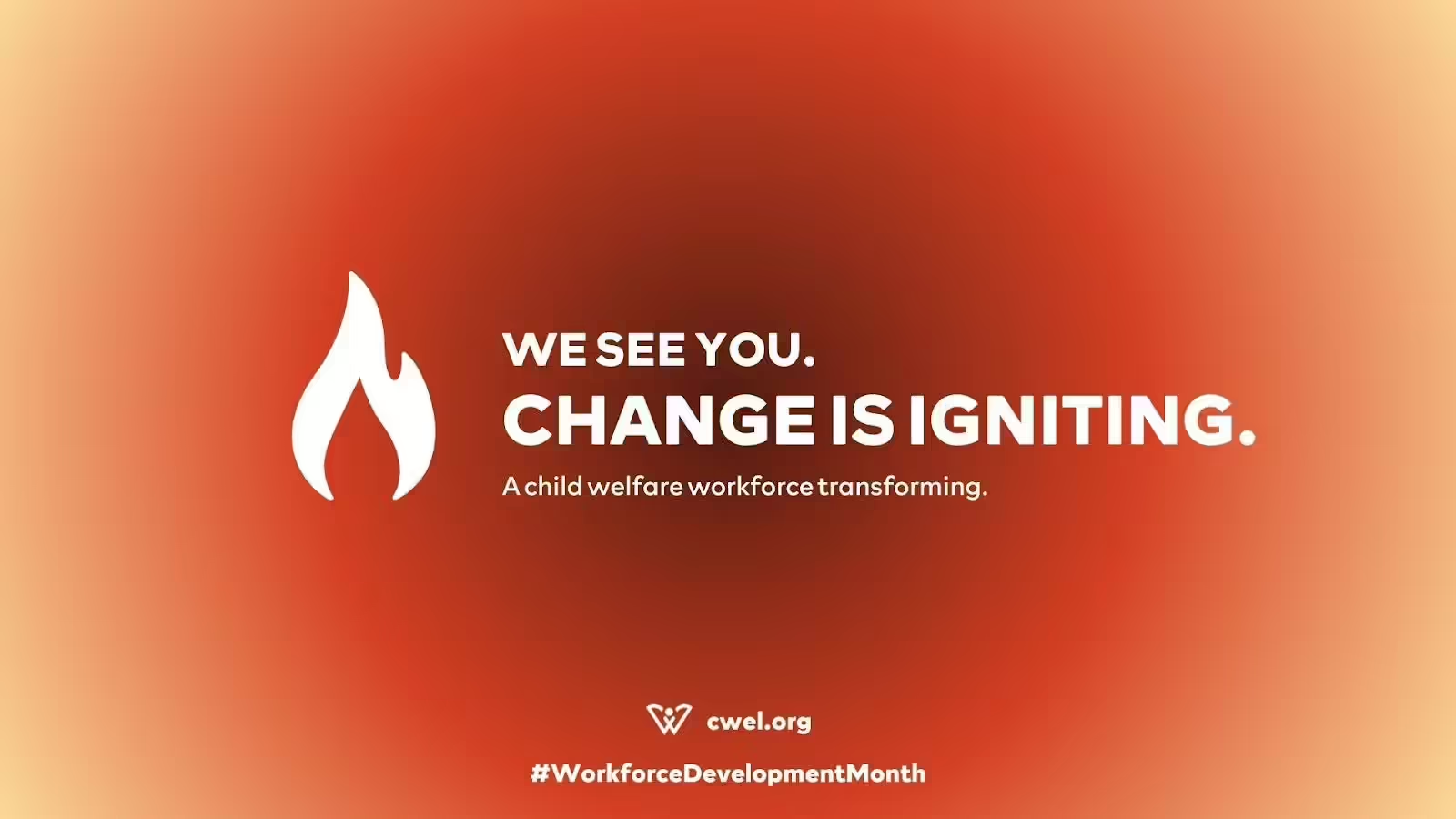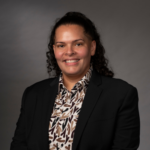Uniting for change: Celebrating Workforce Development Month in child welfare

Workforce Development Month is celebrated every September, and the CWEL is using this time to think about how we can better support people working in child welfare. CWEL’s message this year is:
“We see you. Change is igniting.”
Burnout and lack of growth opportunities are causing high turnover in child welfare, and CWEL’s message emphasizes the need to improve and develop our workforce. Child welfare is hard, important work that demands specialized skills and support. That support starts and ends with community—not just the communities we serve, but the community we build. A community just as dedicated to each other as the families we serve.
When I first started working in child welfare, I was a young professional with personal experience with this system. I was ready to make a difference, but I quickly became disillusioned. The system was mostly focused on dealing with multiple crises, and I often had little supervision or guidance in my work. I felt isolated, unheard, and unseen. While I couldn’t be fully certain how others were fairing, the steady rotation of colleagues coming and going suggested they were dealing with the same issues. And those who stayed operated individually, putting out daily fires with the lone goal of going home by 5 PM.
I used yoga to manage the stress. After a session, I shared my frustrations with my instructor, Master Nam Yom Kim. His profound insight: “It sounds like the problem is a lack of trust.”
It struck a chord with me. Since then, I’ve been reflecting on that idea.
The system doesn’t trust that parents can develop the skills to provide the emotional and financial support their children need. Parents don’t trust that workers want to advocate for them. The court doesn’t trust that child welfare agencies are doing their best for children and families. Supervisors don’t trust their workers, and workers don’t trust that their jobs are secure.
Child welfare operates within a toxic web of finger-pointing rather than collaboration.
This reminds me of Alta Lash, another mentor of mine and former nun turned community organizer in Hartford, CT. When I took a break from child welfare to serve in the United States Air Force Reserves, I asked Alta what she thought would be the key to achieving world peace. She said, “If aliens came down, then all countries would suddenly bond because we have a common enemy.”
Fast forward, I’ve served in the Air Force Reserves for almost a decade and now understand what Alta meant. I’ve served with diverse individuals who put all differences aside to achieve one goal, and I’ve witnessed miracles happen when people work together. In the Air Force we have the concept of the wingman/wingwoman, meaning we never leave each other behind. This creates a sense of responsibility to each other and our mission.
Imagine if the child welfare workforce collectively paused to address the cycles that keep us in perpetual crisis. Imagine if we acknowledge the true enemies: poverty and racism that break down families and community structures. Imagine if we intentionally united as a community of professionals committed to serving the broader community of children and families.
Let’s stop the finger-pointing. Let’s work together, share resources, support each other, and step in when our co-workers need help. Let’s build a community of child welfare leaders with one goal: to serve each other while we serve our communities.
By fostering a sense of community and trust within the child welfare workforce, we can create a more effective system for the children and families we serve. CWEL’s initiatives are a step in the right direction, aiming to bring about the necessary changes to develop a more cohesive and collaborative workforce. I truly believe that if we begin to notice each other and commit to working together to achieve a common goal, real change will come. Together, we can ignite change.
